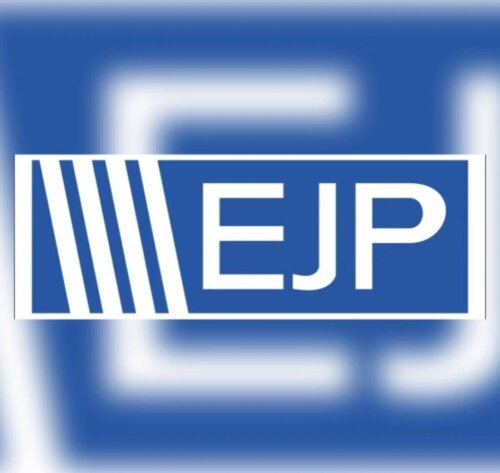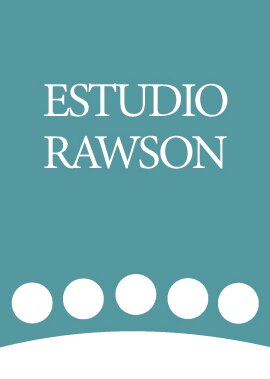Best International Trade Law Lawyers in Mar del Plata
Share your needs with us, get contacted by law firms.
Free. Takes 2 min.
List of the best lawyers in Mar del Plata, Argentina
1. About International Trade Law in Mar del Plata, Argentina
International Trade Law in Mar del Plata sits at the intersection of federal regulation and local business needs. It covers how goods and services move across borders, including import and export procedures, customs enforcement, and compliance with Mercosur rules. Local port activity and logistics in Mar del Plata influence the practical aspects of compliance and risk management for importers and exporters.
Practitioners in this field help with regulatory interpretation, contract structuring for cross-border deals, and disputes arising from cross-border transactions. In Argentina, most trade regulations are federal, but jurisdictional nuances apply to port operations, logistics, and regional business setups. An attorney focused on comercio exterior helps you navigate the rules and avoid penalties while optimizing timing and costs.
Mercosur remains a central framework for Argentina's trade with partner countries, shaping origin rules and tariff preferences for Mar del Plata businesses.
Argentina's customs authority administers import and export regimes and enforces compliance with the Ley de Aduanas.
2. Why You May Need a Lawyer
Because trade law is complex and penalties can be costly, a specialized abogado in comercio exterior can save time and money. Below are concrete scenarios relevant to Mar del Plata businesses and residents.
- You import fishing equipment for a Mar del Plata processing facility and need correct tariff classification and licensing to avoid misdeclaration penalties at the port.
- You export seafood or produce to Mercosur or international buyers and require accurate origin certificates and compliance with Rules of Origin.
- Your company faced a customs audit or potential multas for misclassification, under-valuation, or improper documentation at the Mar del Plata port.
- You plan a temporary import for a trade show or demonstration in Mar del Plata and must meet specific temporary import requirements and export clearances.
- You are negotiating a cross-border distribution or agency agreement with a foreign supplier and need enforceable contract terms and compliance with local consumer protection rules.
- You seek a resolution to a cross-border dispute through negotiation, arbitration, or local court, and need guidance on jurisdiction and applicable law.
3. Local Laws Overview
Trade law in Mar del Plata relies on national rules that regulate customs, import/export regimes, and cross-border commerce under Mercosur. The following laws and regulatory instruments are central to most cases you will encounter.
Ley de Aduanas (Customs Law) - main framework for import and export controls
The Ley de Aduanas governs customs duties, clearance procedures, import licenses, and enforcement actions at Argentine ports, including Mar del Plata. Its text and amendments are publicly available for review and compliance planning.
Reglamento de Despacho Aduanero y Requisitos de Origen
Regulations governing despacho aduanero (customs clearance) and origin determinations for Mercosur trades are enforced through AFIP and related regulatory acts. These rules determine who may clearance goods, how origin is established, and which supporting documents are required at the port of entry or exit.
Nomenclatura Común del Mercosur (NCM) and Rules of Origin
Argentine import and export classifications rely on the Mercosur NCM system and the Rules of Origin to determine tariff treatment and eligibility for regional preferences. This framework affects how goods originating in Mar del Plata subsidiaries and suppliers are treated at customs.
Practical note: you should review these instruments on official sites to confirm current procedures and any recent updates, such as changes to import licensing or origin documentation.
Argentina’s normative framework for trade can be checked on oficial portals for laws and regulations.
4. Frequently Asked Questions
What is International Trade Law in Argentina?
It covers rules for cross-border buying and selling, customs procedures, and trade remedies. It includes Mercosur obligations and foreign investment considerations for Argentine businesses.
How do I file a customs declaration at the Mar del Plata port?
Declarations are processed through the importer’s Cuban tax ID (CUIT) and the AFIP-DGA system, with documentation like commercial invoices, packing lists, and origin certificates required.
When are import licenses required for goods?
Some goods require import licenses or special permits based on category, risk, or national security concerns. Your abogado can verify requirements before shipment.
Where can I obtain proof of origin for Mercosur shipments?
Origin certificates are issued by competent authorities and verified through AFIP and local chambers. Your lawyer can guide you through the correct form and procedure.
Why do I need a lawyer for customs penalties or audits?
A lawyer can assess the basis of penalties, prepare defenses, and negotiate resolutions with authorities to minimize fines and ensure proper compliance measures.
Can I represent myself in a customs dispute in Argentina?
You may represent yourself, but navigating complex regulatory language and procedural timelines benefits from professional counsel.
Should I hire a trade lawyer for drafting distribution agreements with foreign suppliers?
Yes. A trade lawyer ensures compliance with Argentine and Mercosur rules, aligns with your commercial goals, and includes protective contract terms.
Do I need to register as an importer with AFIP?
Most importers must register with AFIP and maintain current tax and regulatory obligations. Your abogado can confirm your status and obligations.
How much does a trade law attorney cost in Mar del Plata?
Costs vary by complexity, but typical engagements are based on hourly rates or flat fees for defined tasks such as contract review or regulatory consultations.
How long does a typical customs clearance take in Mar del Plata?
Clearance time depends on cargo type and documentation quality. Routine shipments may clear within 24 to 72 hours after submission of complete documents.
What is the difference between temporary import and permanent import?
Temporary import allows goods to enter Argentina for a limited period without full import duties, typically for exhibitions or repairs. Permanent import transfers ownership and duties upon entry.
Is arbitration appropriate for cross-border disputes in Argentina?
Arbitration is commonly used for international disputes, with governing rules and seat of arbitration chosen by the parties, often offering enforceability through international conventions.
5. Additional Resources
The following official resources provide authoritative information on trade law, customs, and regulatory requirements relevant to Mar del Plata:
- AFIP - Administración Federal de Ingresos Públicos - the federal tax authority responsible for customs administration, import and export controls, and legal compliance guidance. afip.gob.ar
- Mercosur Official Website - framework for regional trade rules, origin requirements, and tariff preferences among member states, including Argentina. mercosur.int
- Infoleg - Normative Acts - official repository of Argentine laws, decrees, and regulatory acts including trade and customs provisions. infoleg.gob.ar
6. Next Steps
- Define your trade objective and compile a file with company registration, CUIT, and current import/export activity details. Time estimate: 1-3 days.
- Identify at least 3 qualified International Trade Law abogados in or near Mar del Plata. Look for experience with port logistics and Mercosur matters. Time estimate: 1-2 weeks.
- Review each candidate’s track record, ask for client references, and request a written fee proposal and engagement scope. Time estimate: 1 week.
- Schedule initial consultations to discuss your case, documents, and the lawyer’s approach to risk and dispute resolution. Time estimate: 1-2 weeks.
- Obtain and sign a formal engagement letter with defined milestones, deliverables, and fee structure. Time estimate: 1 week.
- Provide all relevant documents and establish a communication plan with your abogado. Set a project timeline and regular check-ins. Time estimate: ongoing.
- Proceed with regulatory filings, contract reviews, or dispute resolution as planned, monitoring results and adjusting strategy as needed. Time estimate: weeks to months depending on the matter.
Lawzana helps you find the best lawyers and law firms in Mar del Plata through a curated and pre-screened list of qualified legal professionals. Our platform offers rankings and detailed profiles of attorneys and law firms, allowing you to compare based on practice areas, including International Trade Law, experience, and client feedback.
Each profile includes a description of the firm's areas of practice, client reviews, team members and partners, year of establishment, spoken languages, office locations, contact information, social media presence, and any published articles or resources. Most firms on our platform speak English and are experienced in both local and international legal matters.
Get a quote from top-rated law firms in Mar del Plata, Argentina — quickly, securely, and without unnecessary hassle.
Disclaimer:
The information provided on this page is for general informational purposes only and does not constitute legal advice. While we strive to ensure the accuracy and relevance of the content, legal information may change over time, and interpretations of the law can vary. You should always consult with a qualified legal professional for advice specific to your situation.
We disclaim all liability for actions taken or not taken based on the content of this page. If you believe any information is incorrect or outdated, please contact us, and we will review and update it where appropriate.









